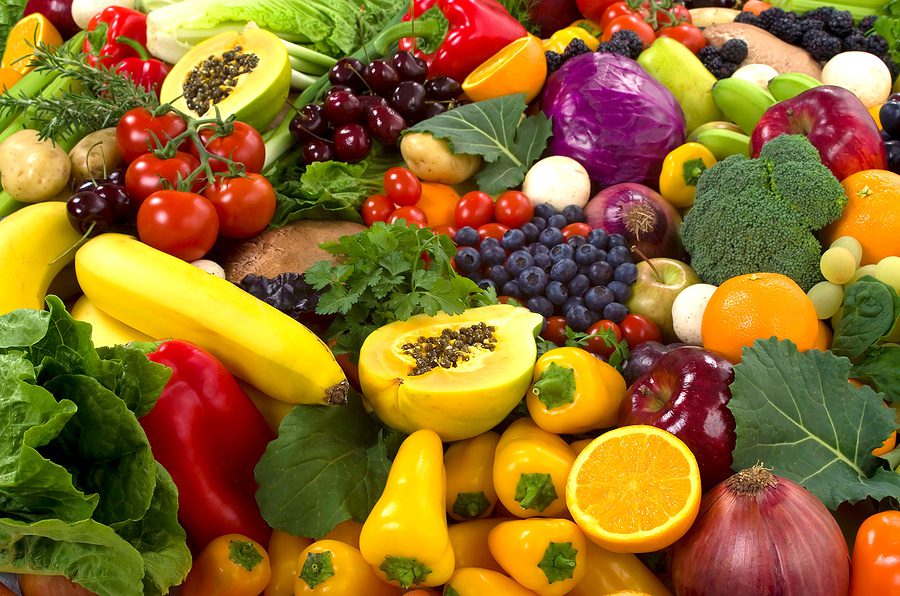The human body works in amazing ways. The right nutrients can help your body recover and repair itself. And while a trip to the farmer’s market is no replacement for a doctor, some food can help your surgery recovery a little easier. This article will discuss some of the ways that you can change your diet for the better to help with recovery. Please note that any major changes in your diet should be discussed with your doctor. This can be especially important if you are on certain medications that may require the restriction of certain nutrients.
Berries and Other Antioxidant-Rich Food
Berries and other antioxidant-rich foods help your body repair damage. Most berries are also a good source of Vitamin C, which helps rebuild soft tissue. Together, they can help promote healing of the incision site from your surgery. Nutrient-packed berries include grapes, pomegranates, blueberries, raspberries, strawberries, goji berries, and blackberries.
Eat Your Vegetables
Vegetables house a lot of different nutrients that can all play a role in your recovery. Vegetables are a healthy source of carbohydrates, which can help reduce fatigue. Carbohydrates can also help reduce muscle strain and atrophy. Vitamins A and C are also high in most vegetables. Eating high-fiber veggies can also help reduce constipation. And because constipation is a common side effect of pain medications, fiber can be an important part of your post-recovery plan. Some nutrient-packed vegetables to add to your diet can include carrots, bell peppers, broccoli, cauliflower, cabbage, brussels sprouts, and sweet potatoes.
Food with Healthy Fats
Healthy fats are a necessary part of every diet, Healthy fats can help your body absorb vitamins and other nutrients. Fats are also essential to bolster your immunity and reduce the chance of infection. Many foods with healthy fats also provide vitamin E. Some food that contains healthy fats include nuts, seeds, avocados, fish, olive oil, and coconut oil.
Dark, Leafy Greens
While these are vegetables, they offer different health benefits than the vegetables above. Dark, leafy veggies offer vitamins A, C, E, and K. They are also rich in iron, fiber, magnesium, potassium, and calcium. It should be noted that some medications request that you avoid leafy greens, especially certain blood thinners. Most doctors should give you a list of foods to avoid based on your medications. If you have any questions regarding what foods you can eat based on your medications, reach out to your doctor. Common leafy greens that can offer the above nutrients include kale, spinach, swiss chard, romaine lettuce, and bok choy.
Protein-Rich Food
Meat and other complete proteins are essential for our bodily functions. Protein is vital in repairing muscles that may have been injured in the surgical process. Amino acids found in proteins help repair muscle damage by helping your tissues with regeneration. They can also help speed up wound healing. After surgery, your body may have a harder time digesting or chewing tougher meats. Because of this, you may want to start out with ground meats or slow-cooking preparations. Protein-rich food that is good for recovery includes poultry, seafood, beans, lentils, nuts, eggs, and tofu.
Probiotics
Probiotics are healthy bacteria that can help you with a whole assortment of bodily functions. Most doctors suggest taking probiotics along with antibiotics, because they work hand-in-hand. Probiotics help bolster your immune system and regulate your digestion. Anesthetics, antibiotics, and painkillers can affect your digestive system, but probiotics help promote a healthy tract. Common probiotic-rich food includes yogurt, kimchi, sauerkraut, and kefir.
Drink Plenty of Water
Water is essential for your body to function properly. It is important to avoid dehydration, especially while in recovery. Depending on your surgery, and the medications prescribed afterward, your hydration requirements may be greater than normal. If you have difficulty drinking plain water, try flavoring it with citrus or cucumber, drinking coconut water, making a smoothie with extra water, or eating soup.
Home Care Beyond Food
If your elderly loved one is recovering from surgery, they may need additional help around the house. SafeHarbor Healthcare Services offers recovery care options for our clients. We work closely with the patients, and the hospital to ensure that they are receiving the proper recovery care. Our Certified Home Health Aides can assist your loved one with doctor’s visits, bathing, medication reminders, meal preparation, and more.
Safe Harbor Healthcare Services does not provide medical, healthcare, or financial advice via articles. This material has been prepared for informational purposes only. It is not intended to provide, and should not be relied on for medical advice.
Safe Harbor Healthcare Services has been providing excellent home care on Staten Island since 1967. Our services help the elderly and disabled live safely and independently; while giving their families the peace of mind they need. For more information contact us by clicking here, or call (718)-979-6900.

